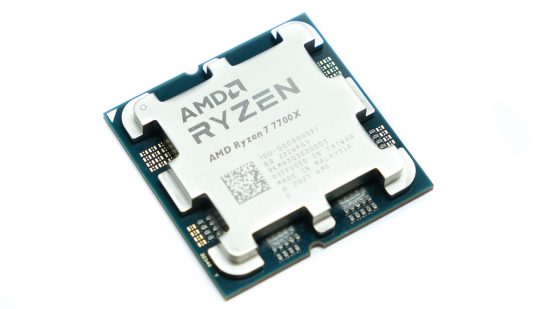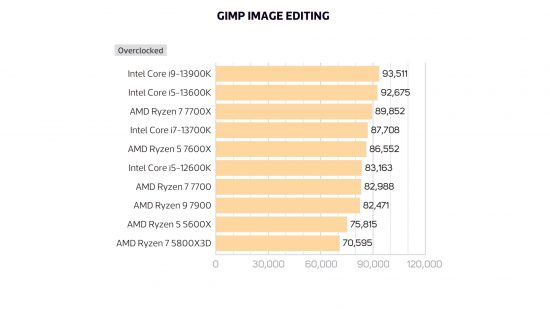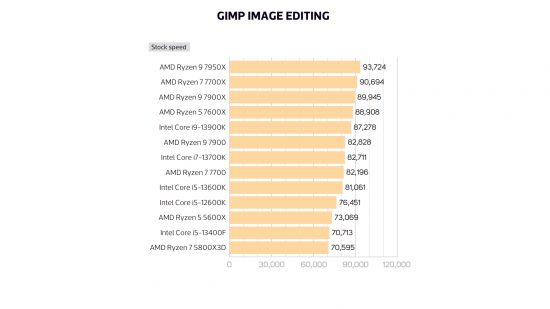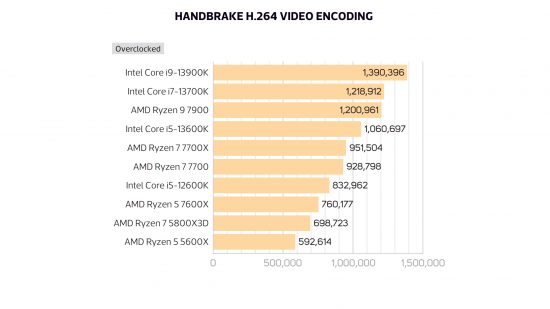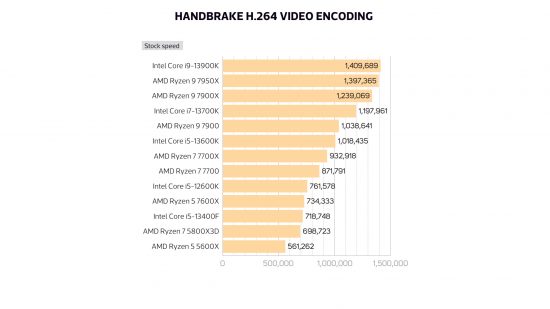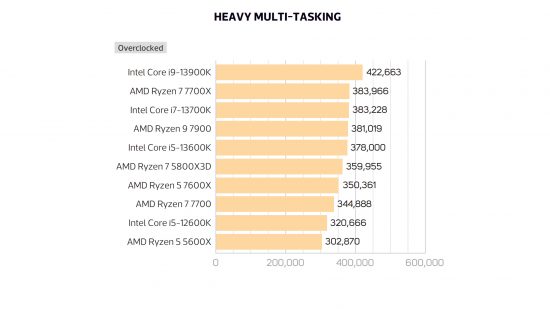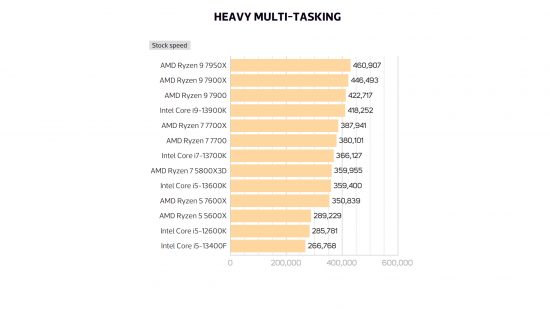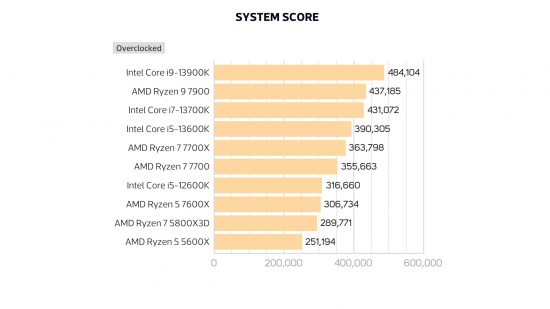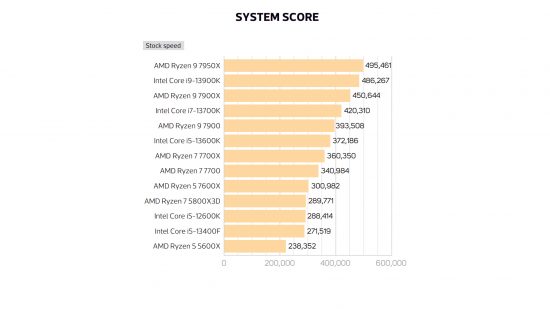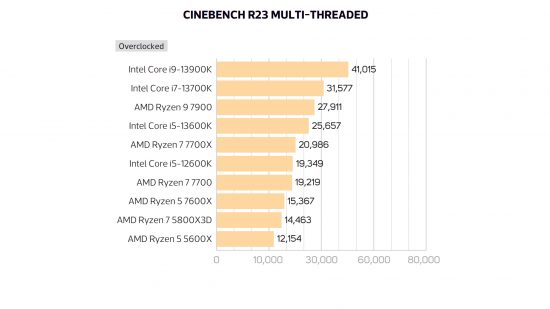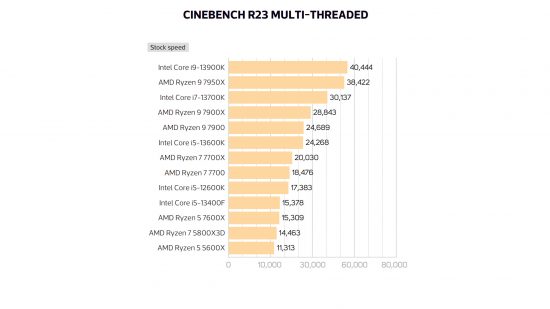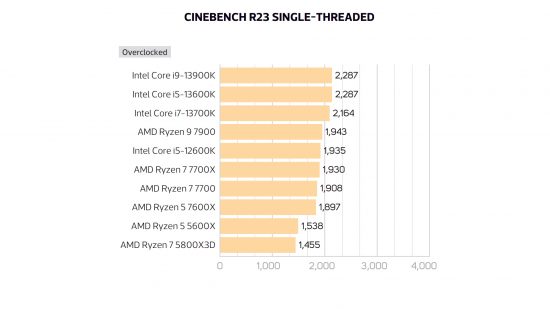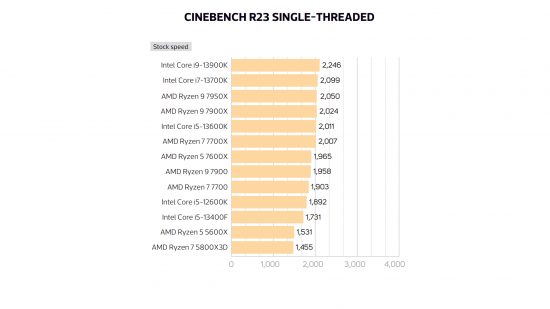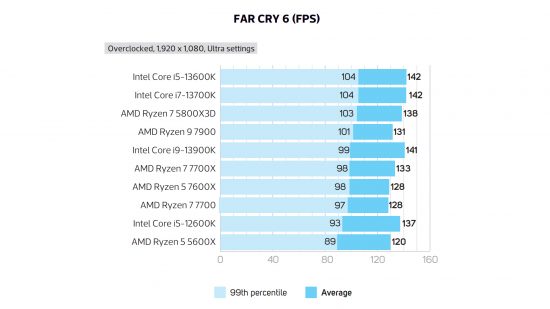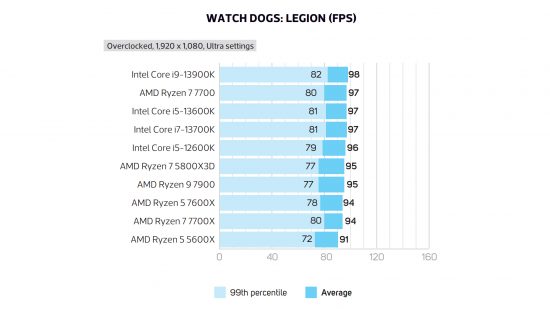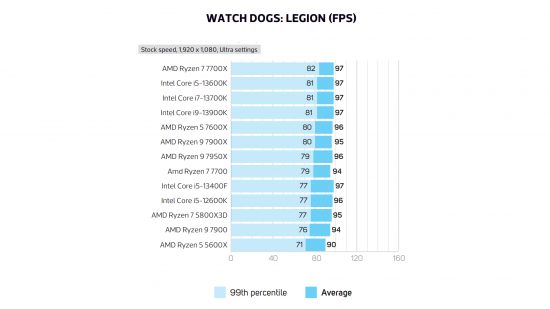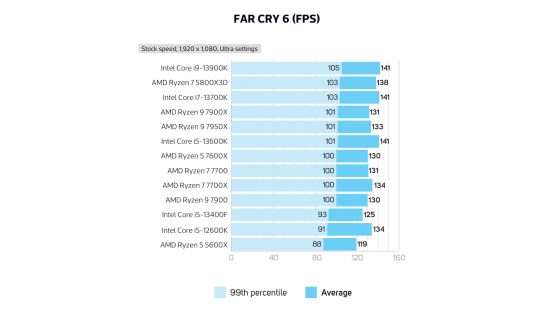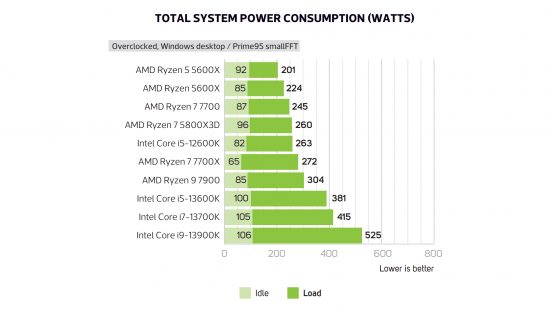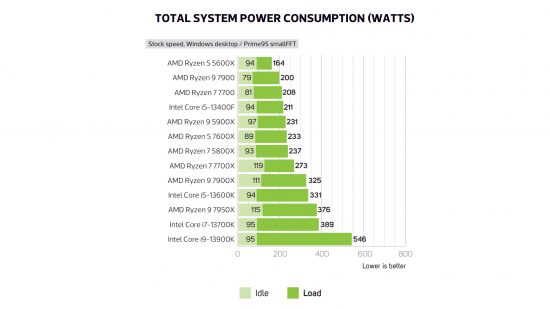Our Verdict
80%Much better value than at launch, but Intel’s Core i5-13600K is still a slightly better option.
While the Ryzen 5 7600X is a questionable purchase, given the expense of buying a Socket AM5 motherboard and the need for DDR5 memory, the Ryzen 7 7700X is where AMD’s Zen 4 platform starts to make a bit more sense. What’s more, thanks to AMD’s recent price cuts to the relatively new Ryzen 7000 series, this eight-core chip now sets you back around $339, which is much cheaper than the $399 launch price.
At Custom PC, we’ve been reviewing the latest CPUs since 2003, and we’ve tested and overclocked hundreds of CPUs, going right back to the Pentium 4 and Athlon XP era. We’ve developed an expert testing methodology that covers all the key areas of performance, including single-threaded and multi-threaded performance, as well as gaming.
Our benchmarks include our very own RealBench suite, which had a GIMP image editing test that stresses single-threaded performance, and a Handbrake H.264 video encoding test to gauge multi-threaded performance, as well as multi-tasking tests.
We also use the single and multi-threaded tests in Cinebench, as well as Far Cry 6 and Watch Dogs: Legion. For our game tests, we record the 99th percentile and average frame rates, and finally, we also measure the idle and load total system power consumption at the wall, while running Prime95’s smallest FFT test with AVX disabled.
The Ryzen 7 7700X is up against some stiff competition, though, largely thanks to Intel boosting the number of E-Cores in its 13th-gen Raptor Lake CPUs, such as the similarly-priced Core i5-13600K, as well as improving their design and increasing their clock frequencies.
The Ryzen 7 7700X has the same eight cores and 16 threads as the Ryzen 7 5800X, but it’s helped along by AMD’s mighty new Zen 4 architecture and higher frequencies than its predecessor.
In addition to having twice the amount of L2 cache as its predecessor, the Ryzen 7 7700X is able to hit 5.2GHz across all eight cores, while the Ryzen 7 5800X languished at just 4.5GHz, and there’s a massive 700MHz deficit in the peak boost frequency between the two chips as well.
A single eight-core core chiplet die (CCD) is active under the hood, and due to the way multiple CCDs access the rest of the system, the Ryzen 7 7700X can actually be faster than Ryzen 7000-series CPUs that have more cores, thanks to reduced latency.
Temperatures at full load were a little lower than with this CPU’s 12 and 16-core siblings, but it still topped 85°C easily. To get any more performance out of it, you’ll need to spend some time getting to grips with AMD’s curve optimizer, and you’ll have to focus on reining in temperatures and power consumption.
However, unlike those other CPUs, applying a manual overclock proved worthwhile with this chip. Applying a 1.25V vcore helped to a stable all-core overclock to 5.4GHz, matching the highest frequency we saw it hit at stock speed and raising the all-core boost by 200MHz.
This was also a slightly lower voltage than the CPU uses as standard, so the CPU temperature actually went down slightly, while the power draw remained the same. For more information, read our full guide on how to overclock the Ryzen 7 7700X.
Ryzen 7 7700X application performance
At stock speed, the Ryzen 7 7700X’s superb single-threaded performance made it much faster than the Intel Core i5-13600K at stock speed in our image-editing test, but the Intel CPU overtook the Ryzen again when both chips were overclocked.
Otherwise, when it comes to performance elsewhere, the 7700X wasn’t able to better the Core i5-13600K, recording a lower RealBench system score, even when overclocked, and the Intel CPU proved to be a far better overclocker.
Ryzen 7 7700X gaming performance
The Ryzen 7 7700X was also behind the Core i5-13600K when it came to our gaming tests, with an average frame rate of 134fps in Far Cry 6, compared with 141fps for the Intel chip. AMD’s older Ryzen 7 5800X3D was also quicker than the Ryzen 7 7700X in this test, thanks to its extra cache.
Ryzen 7 7700X power draw
One area where the Ryzen 7 7700X beats the Core i5-13600K hands down is the power draw. Our test system drew 273W from the mains with the Ryzen 7 7700X running at full load, but our Core i5-13600K test rig drew 331W from the mains under the same test. but did draw 60W more under load.
Ryzen 7 7700X pros and cons
Pros
- Decent out-of-the-box performance
- Good efficiency
- Responds reasonably well to tweaking
Cons
- Core i5-13600K offers better value
- High platform cost
- Mediocre multi-threaded performance
Ryzen 7 7700X specs
The AMD Ryzen 7 7700X specs list is:
| Base frequency: | 4.5 GHz |
| Max boost frequency: | 5.4 GHz |
| Core: | Zen 4 |
| Manufacturing process: | 5 nm |
| Number of cores: | 8 |
| Number of threads: | 16 |
| IGP: | AMD Radeon Graphics |
| L3 cache: | 32 MB |
| L2 cache: | 8 MB |
| Memory controller: | Dual-channel DDR5, up to 5200MHz |
| Packaging: | AMD Socket AM5 |
| Thermal design power (TDP): | 105 W |
| Simultaneous Multithreading (SMT): | Yes |
| Features: | Precision Boost 2, Precision Boost Overdrive 2, FMA3, F16C, SHA, BMI / BMI1 + BMI2, AVX-512, AVX2, AVX, AES, SSE4a, SSE4, SSSE3, SSE3, SSE2, SSE |
Ryzen 7 7700X price
Thanks to a price cut, the Ryzen 7 7700X is much more competitive than before, but the extra outlay needed for a new AM5 motherboard and DDR5 memory bumps up the cost.
Price: Expect to pay $339 USD / £339 GBP
Ryzen 7 7700X review conclusion
A couple of extra cores would have helped AMD match or better the Core i5-13600K, but as it stands the latter is faster in most tests and cements its lead further once overclocked.
However, the Ryzen 7 7700X is no slouch and is a far more power-efficient CPU than Intel’s design, and it offers decent gaming performance for the cash. If you’re in the market for an 8-core Socket AM5 chip, though, the Ryzen 7 7700 is a better buy, being cheaper, more power efficient and cooler running, plus it can be tweaked to similar speeds. Check out our guide to the best gaming CPU for a range of CPUs to suit different needs and budgets.
Curious to see how this processor runs when playing specific games? Check out these CPU benchmarks over on the PCGameBenchmark FPS calculator.
